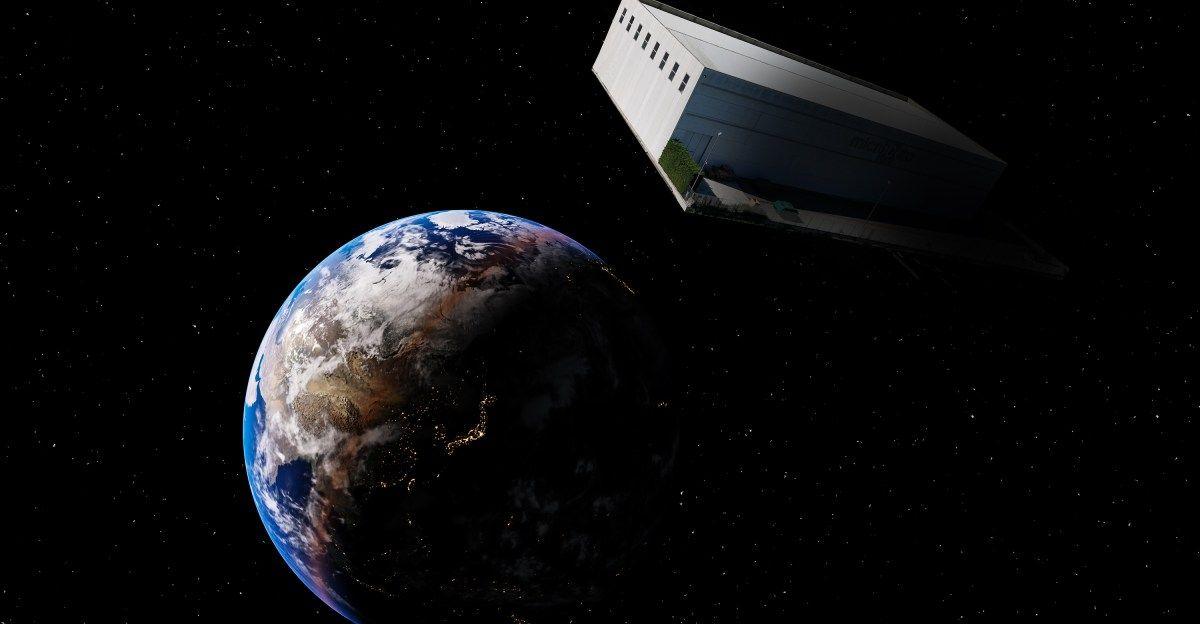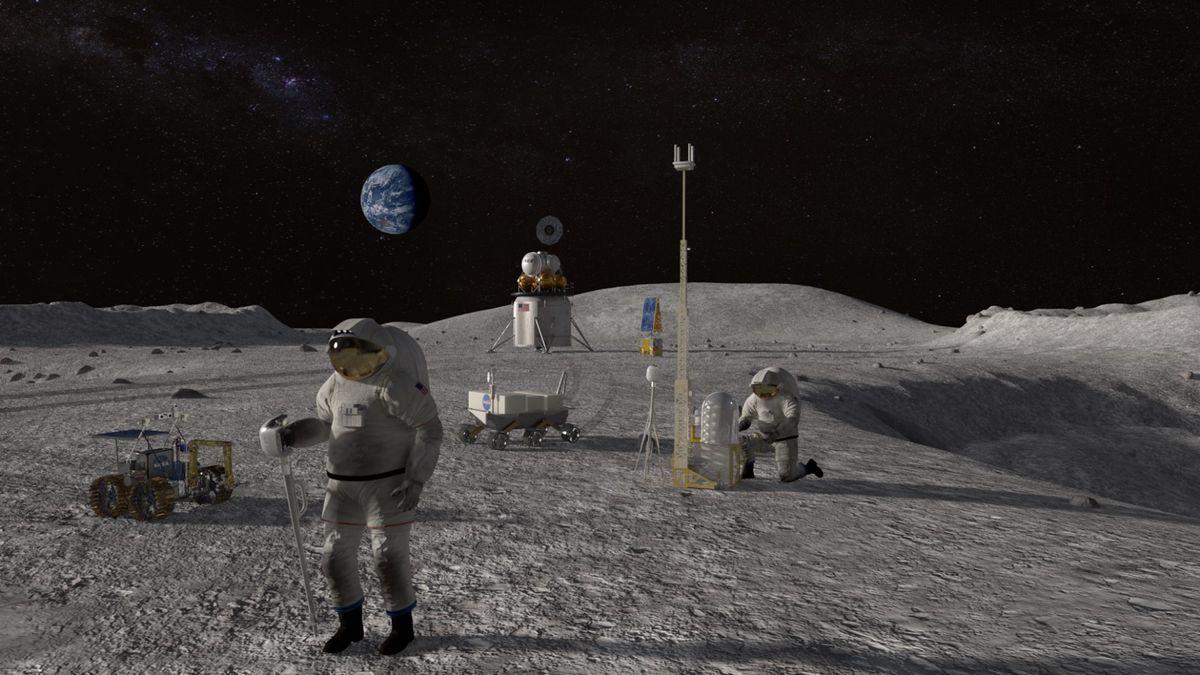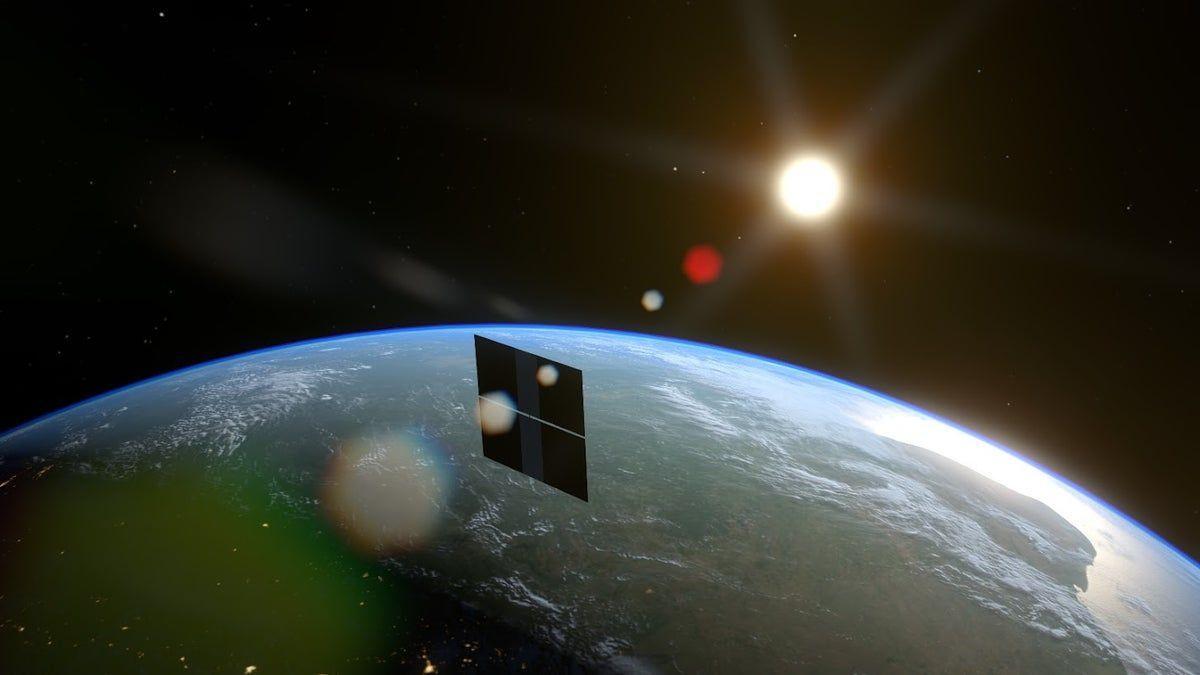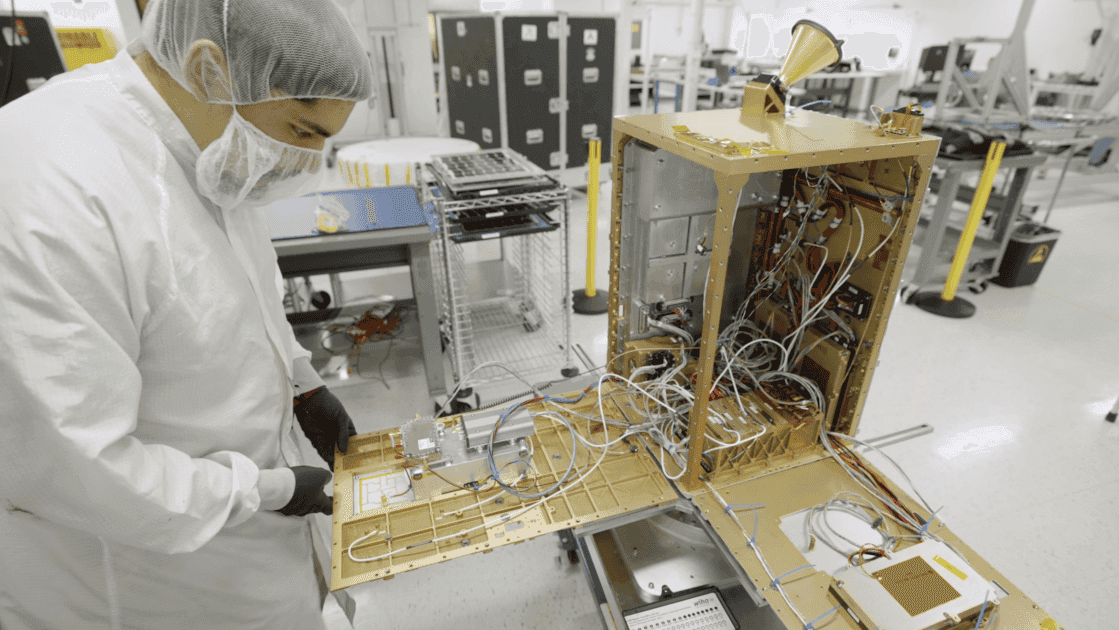Interstellar Lab's Innovative Solution for Growing Food in Space Wins NASA Challenge
2 Sources
2 Sources
[1]
Fresh Veggies in Zero Gravity: This Lab's cubes will grow plants and insects in space for astronauts
NASA is seeking innovative solutions for nourishing astronauts on long-duration space missions, particularly those headed to Mars. The agency's Deep Space Food Challenge, initiated in 2021, prompted teams globally to create sustainable food systems for these missions. In the mission, Interstellar Lab emerged as the winner, receiving a $750,000 prize in August for its project, NuCLEUS (NUtritional Closed-Loop Eco-Unit System). Going to space presents unique challenges, especially regarding access to fresh and nutritious food. As prepackaged food degrades in nutritional value after seven to eight months in space, astronauts risk deficiencies in vital nutrients such as magnesium, potassium, and B12. Barbara Belvisi, founder and CEO of Interstellar Lab, stated, "Due to solar radiation, the nutritional value of prepackaged food starts to degrade." NuCLEUS is a modular system of cubes resembling a tic-tac-toe board, primarily designed to grow vegetable plants, microgreens, mushrooms, and insects. Interstellar Lab has tested a variety of crops, including Daikon radish and broccoli, and plans to expand its offerings. While these foods are fresh and edible, they are intended to supplement astronauts' diets rather than solely cater to their tastes. In the final phase of NASA's competition, NuCLEUS produced approximately 22 pounds of plants and insects over 1.5 months. However, a single crew member on a Mars mission would require around 661 pounds of food annually, which emphasizes the need for an upgraded system. Belvisi noted that the current version is a prototype, with future iterations aimed at increasing food production. NuCLEUS employs artificial intelligence to optimize growing conditions within each cube. The system manages factors such as lighting, humidity, and temperature, creating an environment conducive to plant growth. "There is this smart system that is adapting itself, and the human has to do very little intervention," Belvisi explained, highlighting the advantages of automation in space agriculture. One of NuCLEUS's key features is its closed-loop design, which minimizes waste. Insects consume inedible parts of plants, and their by-products are repurposed as fertilizer. The system recycles water, resulting in minimal trash generation, a crucial consideration for space missions. Belvisi remarked, "The only outside resources NuCLEUS requires are power, additional water, and time from the crew." Interstellar Lab plans to launch one of its NuCLEUS systems into space next year, although details about the partnering company remain undisclosed. The prize money will be used to enhance NuCLEUS's hardware and prepare it for space conditions. "It's been three years of hard work," Belvisi noted, underscoring the dedication behind this innovative project. As NASA and Interstellar Lab collaborate on sustainable food solutions, the future of space nutrition looks promising, paving the way for healthier missions to Mars and beyond.
[2]
NASA awarded $750,000 to a business that wants to feed astronauts fresh microgreens and insects
This story is available exclusively to Business Insider subscribers. Become an Insider and start reading now. Have an account? Log in. NuCLEUS consists of a series of cubes that resemble a large tic-tac-toe board. The cubes mostly contain vegetable plants, microgreens, mushrooms, or insects. So far, Interstellar Lab has tested 10 different vegetable and microgreen plants (including Daikon radish, broccoli, amaranth, shishito peppers, fenugreek, and onions), one mushroom variety (oyster), and one insect species (black soldier flies), with plans to add more to the list. They're all fresh and edible -- including the flies. The variety isn't designed for astronauts' appetites, though. It's for their health. Due to solar radiation, the nutritional value of prepackaged food starts to degrade after being in space for seven to eight months, which can leave astronauts on long-duration space missions deficient in key vitamins and minerals like magnesium, potassium, and B12, according to Barbara Belvisi, Interstellar Lab's founder and CEO. Researchers have found that these nutritional gaps can make it difficult for astronauts to combat bone loss, muscle atrophy, cardiovascular dysfunction, and the other physiological challenges that come with living in space. "There was a list of specific nutrients that NASA was interested in growing fresh food to cover those gaps. And so this is where we started," Belvisi said, adding that NuCLEUS is designed to supplement prepackaged food, not replace it. For the final phase of NASA's competition, NuCLEUS produced about 22 pounds of plants and insects over 1.5 months. A single crew member on a long-duration mission, like to Mars, would require about 661 pounds per year (or about four times that amount), Belvisi said. She added that the version tested for NASA's competition is a prototype and the company is working on the next generation, which will be capable of producing more food. Farming in space will look very different from farming on Earth. In the case of NuCLEUS, AI does a lot of the work. Each NuCLEUS cube is a contained environment. The software that controls the lighting, humidity, and temperature in each cube manipulates the environment to provide the optimal growing conditions for each plant's nutritional content. Interstellar Lab's AI collects and processes the data, which then informs the software on how it can improve. "I think this is why NASA liked it," Belvisi said of NuCLEUS. "It's because there is this smart system that is adapting itself, and the human has to do very little intervention compared to existing systems right now," she added. Another benefit is that NuCLEUS is a closed-loop system that can function on its own, more or less. For example, the insects eat the inedible portions of the vegetable and mushroom plants. The flies' by-products (like feces) get reincorporated as fertilizer. Even the water is recycled. Most of the waste is repurposed in some way, generating minimal trash that would otherwise take up room on a spaceship. The only outside resources NuCLEUS requires are power, additional water, and time from the crew, Belvisi said. While NuCLEUS was designed with NASA astronauts in mind, Belvisi said that Interstellar Lab is also working with private companies. Interstellar Lab is scheduled to launch one of its NuCLEUS systems into space early next year -- but it's not yet revealing for which company, she said. The $750,000 winnings will go partly toward upgrading NuCLEUS's hardware, readying it for space, and paying the team, Belvisi said. "It's been three years of hard work."
Share
Share
Copy Link
Interstellar Lab's NUCLEUS system, designed to grow fresh produce and insects in space, wins NASA's Deep Space Food Challenge. This breakthrough could revolutionize space nutrition and long-term missions.

NASA's Deep Space Food Challenge Winner
In a groundbreaking development for space exploration, Interstellar Lab has emerged victorious in NASA's Deep Space Food Challenge. The French-American company's innovative NUCLEUS system has been awarded the grand prize of $1 million, marking a significant milestone in the quest to provide sustainable nutrition for astronauts on long-duration space missions
1
.The NUCLEUS System: A Game-Changer for Space Agriculture
Interstellar Lab's NUCLEUS system is a revolutionary approach to growing food in space. It consists of modular cubes designed to cultivate a variety of fresh produce and even insects in zero-gravity environments. This compact and efficient system could potentially provide astronauts with a diverse and nutritious diet during extended space missions
2
.Key Features and Capabilities
The NUCLEUS system boasts several impressive features:
- Modular design: The cubes can be stacked and configured to optimize space utilization.
- Diverse crop cultivation: Capable of growing various vegetables, microgreens, and even insects.
- Water recycling: Incorporates an efficient water management system.
- Automated processes: Utilizes robotics and AI for maintenance and harvesting.
These features make the NUCLEUS system a promising solution for the challenges of space agriculture
1
.Related Stories
Implications for Future Space Missions
The success of Interstellar Lab's NUCLEUS system has far-reaching implications for space exploration:
- Extended missions: The ability to grow fresh food in space could enable longer-duration missions, including potential Mars expeditions.
- Improved astronaut health: Access to fresh produce and protein sources could significantly enhance astronauts' physical and mental well-being.
- Reduced reliance on resupply missions: On-board food production could decrease the need for frequent cargo shipments from Earth.
NASA's selection of the NUCLEUS system underscores the agency's commitment to developing sustainable food solutions for deep space exploration
2
.Future Development and Implementation
With the $1 million prize, Interstellar Lab plans to further refine and test the NUCLEUS system. The company aims to have a functional prototype ready for deployment on the International Space Station (ISS) within the next few years. This real-world testing will be crucial in validating the system's performance in actual space conditions and paving the way for its use in future deep space missions
1
.As space agencies and private companies set their sights on ambitious goals like establishing a permanent presence on the Moon and sending humans to Mars, innovations like the NUCLEUS system will play a pivotal role in making these dreams a reality. The success of Interstellar Lab in the NASA challenge marks a significant step forward in our ability to sustain human life beyond Earth's boundaries.
References
Summarized by
Navi
[1]
Related Stories
AI Trained in Space as Tech Giants Race to Build Orbiting Data Centers Powered by Solar Energy
11 Dec 2025•Technology

NASA and Google Collaborate on AI Medical Assistant for Deep Space Missions
12 Aug 2025•Technology

Google Plans Space Data Centers to Power AI with Solar Energy, Targets 2027 Launch
02 Dec 2025•Technology

Recent Highlights
1
Google Gemini 3.1 Pro doubles reasoning score, beats rivals in key AI benchmarks
Technology

2
Nvidia and Meta forge massive chip deal as computing power demands reshape AI infrastructure
Technology

3
ChatGPT cracks decades-old gluon amplitude puzzle, marking AI's first major theoretical physics win
Science and Research





